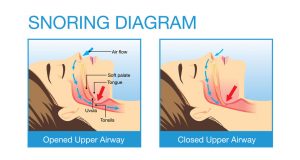Fighting sleep disorders can be an ongoing battle, even in the case of so-called mild sleep problems such as insomnia. For some of us, these sleep related issues are anything but mild, and practices such as keeping a sleep diary often prove to be essential for finding out exactly what’s wrong and how to approach the problem.
Get Better Insight on Your Sleeping Patterns
The most obvious benefit of keeping a sleep diary is that you’ll be able to monitor your sleep patterns more efficiently. This means that you’ll know not just about severe sleep apnea episodes or problems with sleep walking and waking up suddenly, but you’ll also have an idea of how each episode fits in a long term pattern.
As you examine your diary after keeping it faithfully for a few months, you might notice certain patterns, such as how your sleep changes with your menstrual cycle or whether or not there is any correlation between your sleep cycle alterations and temperature or weather changes as winter turns to spring or spring turns to summer.
Using this sleep diary, you will better be able to discuss diagnosis and treatment options with a reputable snore doctor.
Monitor the Efficiency of Your Treatments
When you’re suffering from sleep disorders and your doctor provides you with a treatment or a device like the CPAP machine that you need to use as part of your treatment, you will want to know how effective these methods really are. A sleep diary will help you with that part as well.
Depending on the type of treatment you use, you can write down detailed information about how it affected the amount of time you sleep, the specific episodes you used to have before starting the treatment, or the extent to which it helped you sleep more easily and without interruption.
In some cases, it also helps to record yourself during sleep or to have someone look in on you as you sleep, and make notes of the specific time when, for example, you had a more prominent snoring episode, or your breathing suddenly stopped for a few seconds.
Help Your Doctor Provide You with an Accurate Diagnosis
Although certain sleep conditions, such as sleep apnea, might require a specialized sleep study before the doctor can give you an accurate diagnosis, other sleep disorders might just need some basic investigation for that purpose. A sleep diary will help a lot with these, as it will provide your doctor with invaluable information about the amount of time you sleep, the sensations you have during sleep or upon waking up, the overall quality of your sleep, and any psychological or physiological changes that you might have gone through since the problem first appeared.
Sometimes a diary can even save your life, especially when cases of sleep apnea and other severe sleeping disorders are mistaken for insomnia, because the patient doesn’t fit the usual, statistical profile of what a sleep apnea patient should look like. Also, in the case of women, for instance, breathing cessations and snoring episodes are less prominent, and can go unnoticed in certain cases. But with a sleep diary, you can point them out more easily and convince the doctor to schedule you for a sleep study, instead of just giving you a wrong diagnosis.
